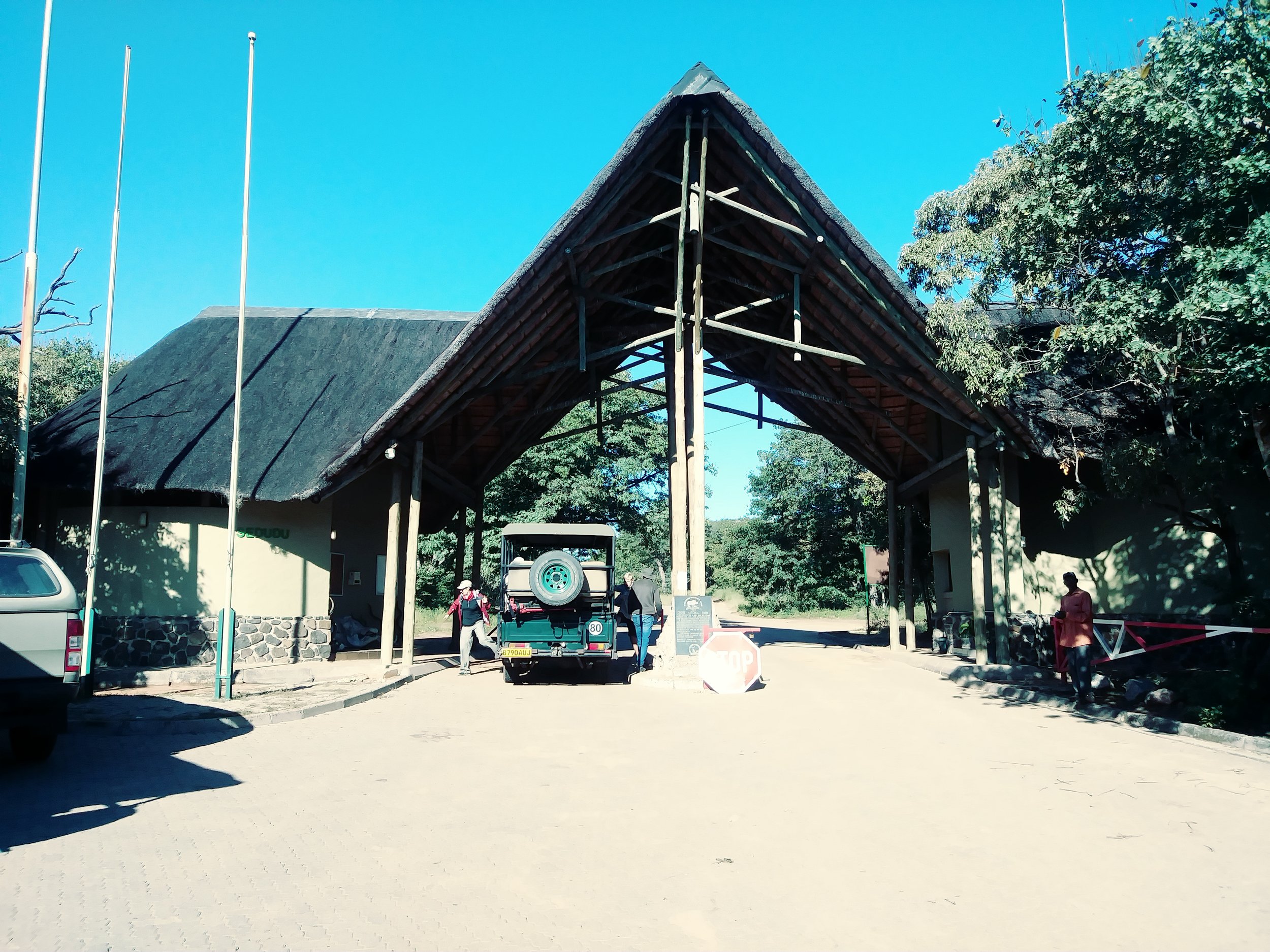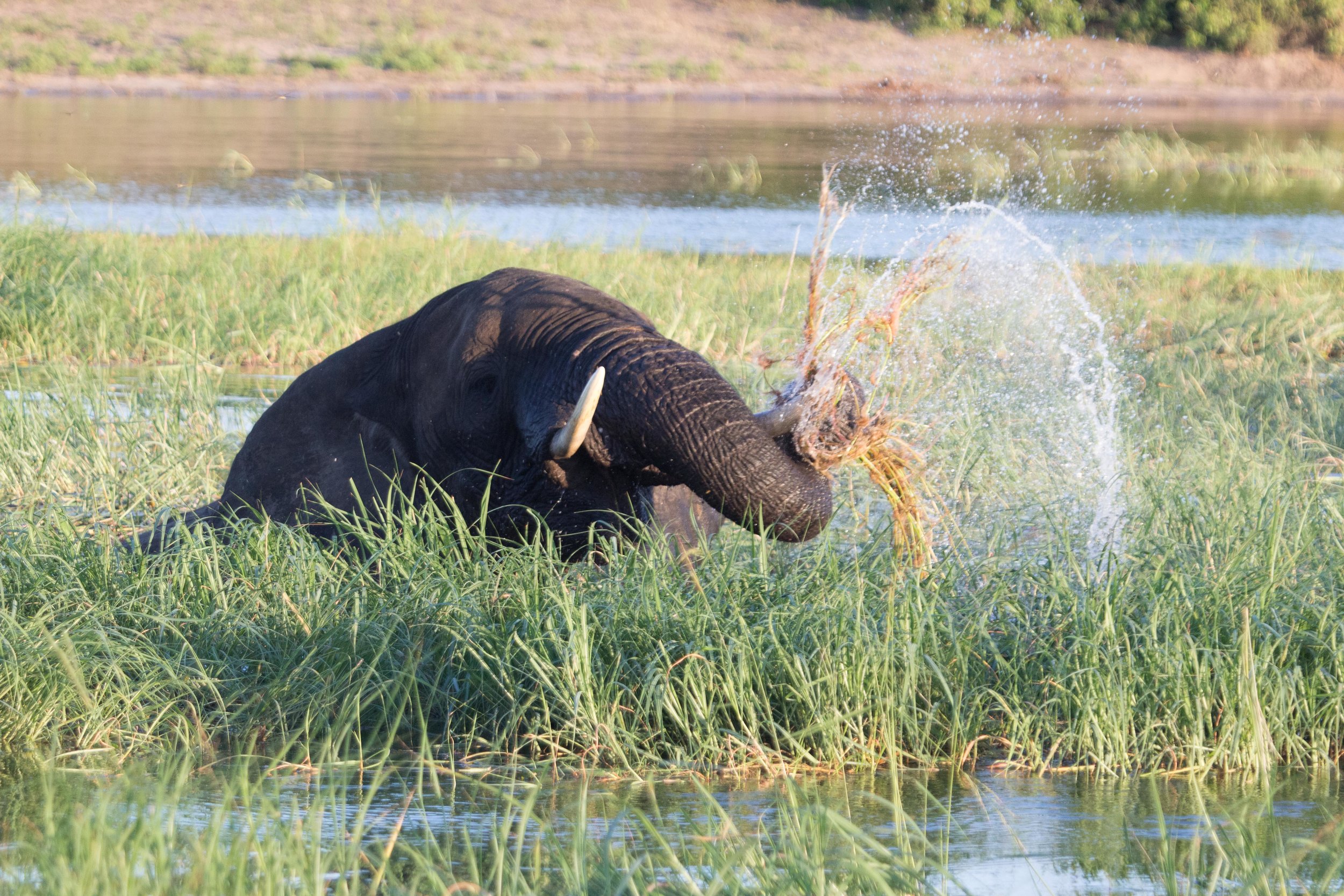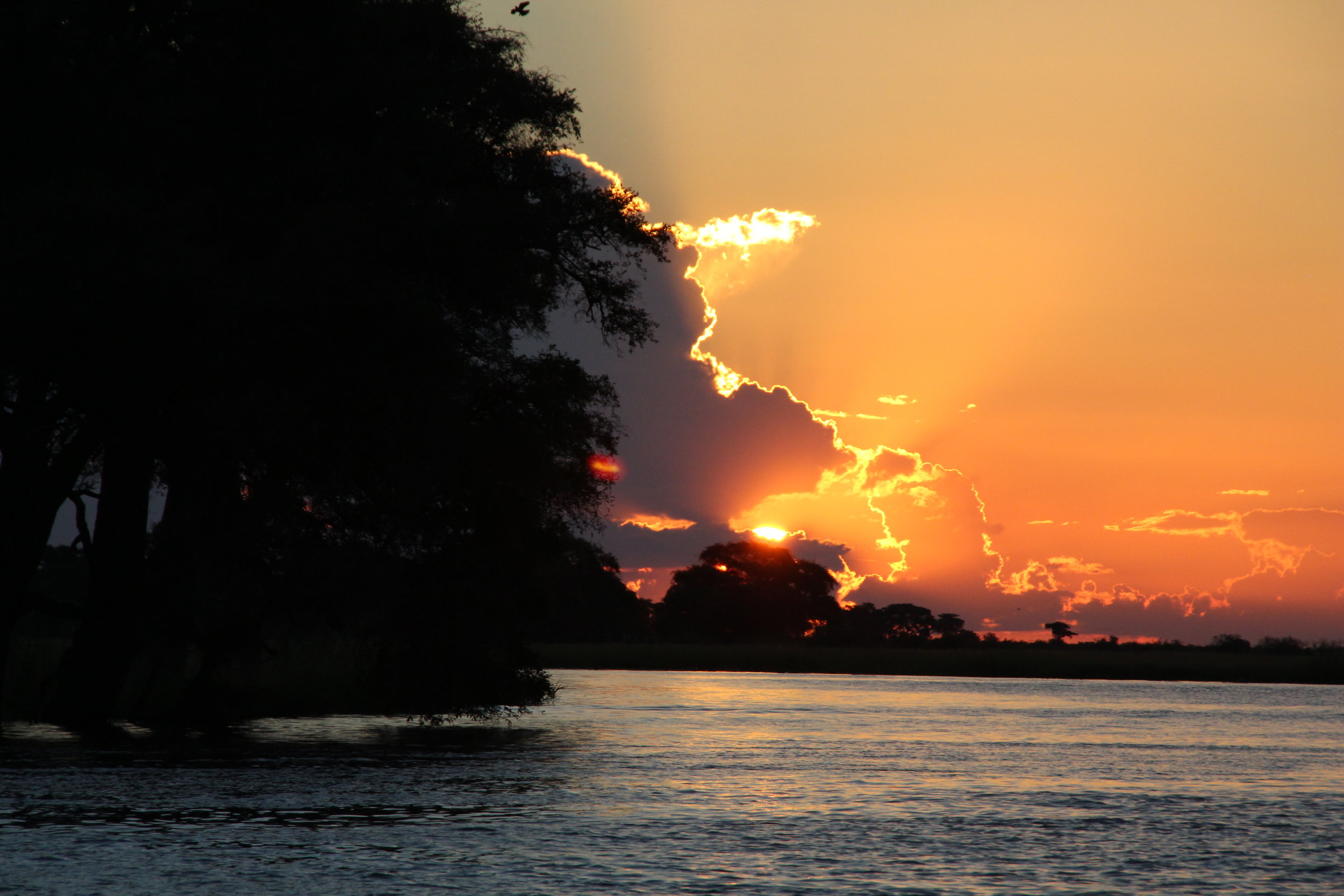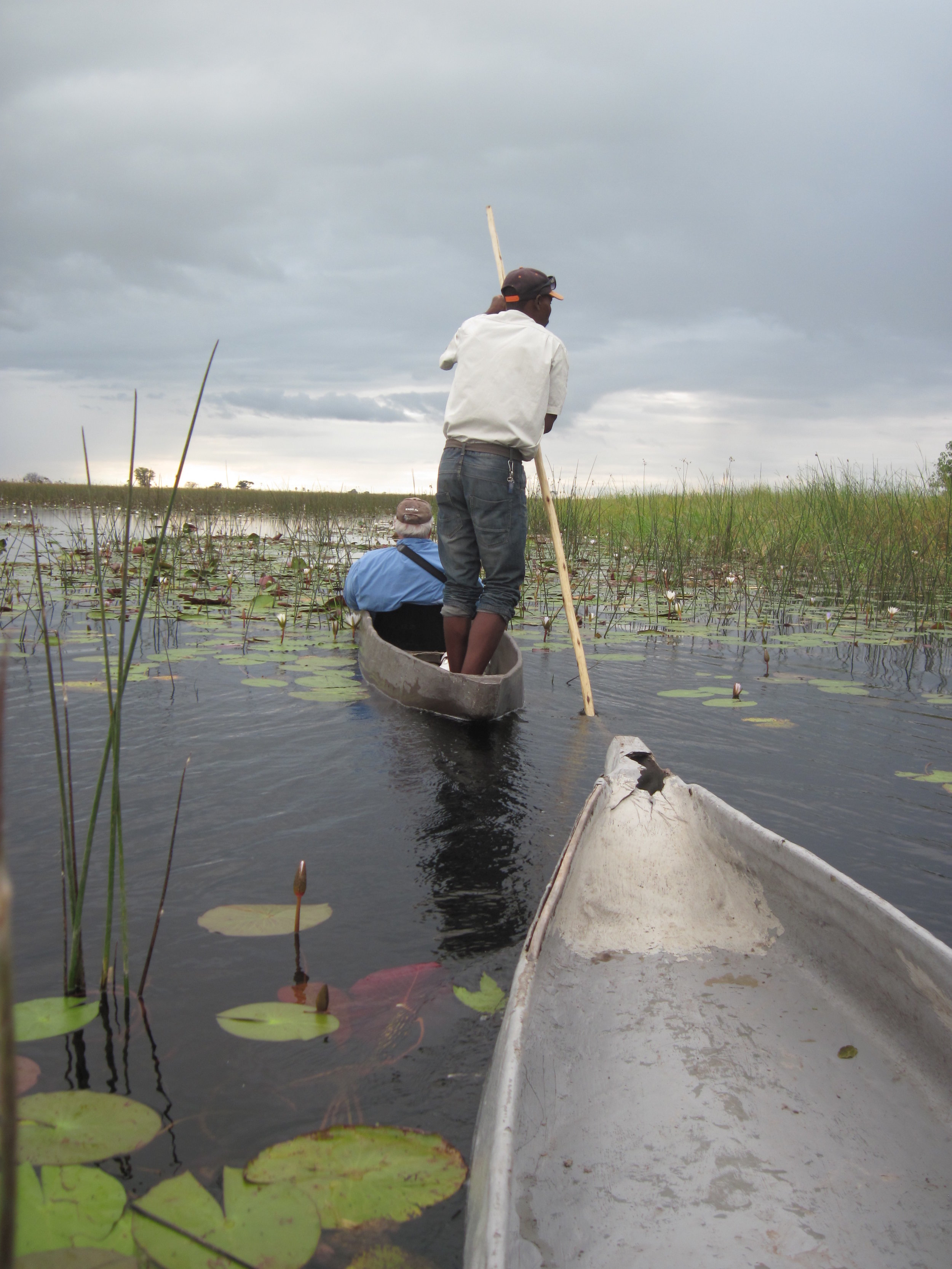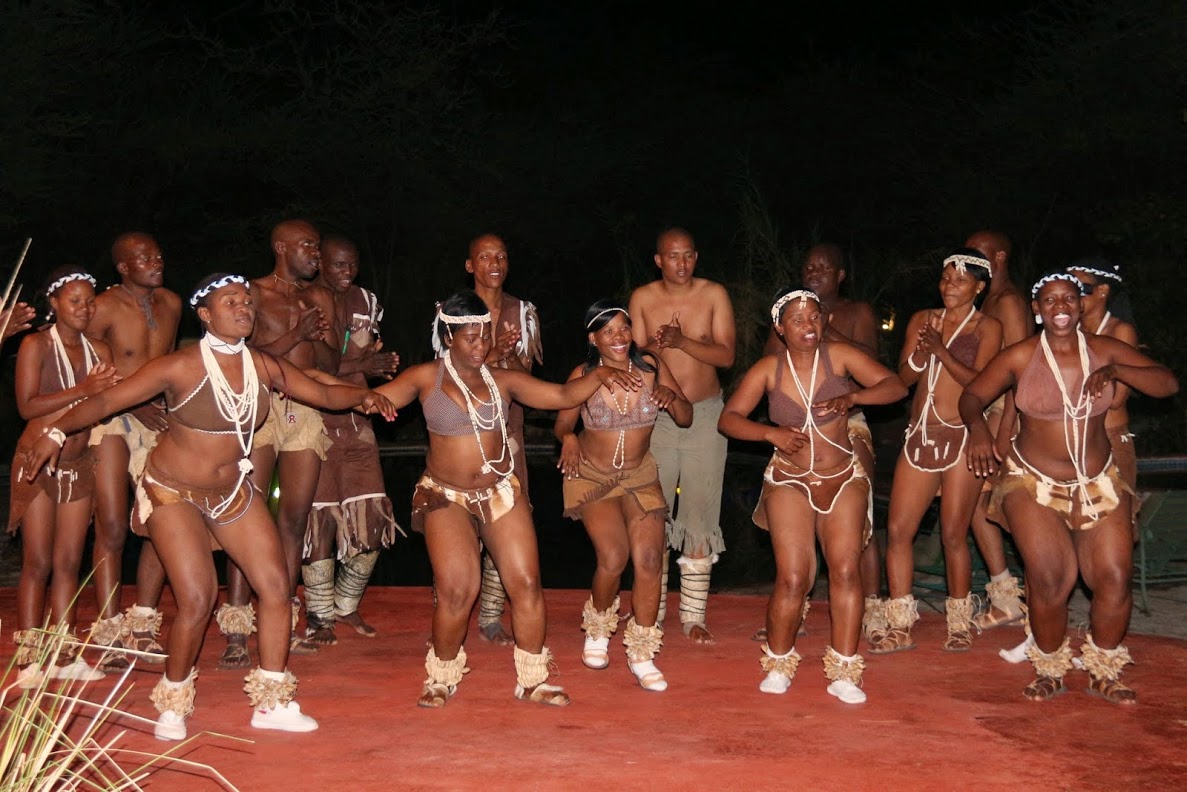Chobe hippos
Botswana has become my favorite African country to visit. It exudes a fresh, progressive, successful vibe that distinguishes it from its neighbors. The Chobe region, Botswana’s most famous and accessible wildlife area, is close to the borders of Zimbabwe, Zambia, and Namibia. Compared to those countries, Botswana is a breath of fresh air. In those other cases, European colonial powers extracted each country’s natural wealth and exploited their native peoples for labor. After independence dictatorial rulers gained power and lined their own pockets rather than build institutions that benefitted its citizens. The result can be seen in poor and deteriorating infrastructures, continuing graft and corruption in government, the squandering of natural resources, and the continued poverty of much of their citizenry. For us visitors the hassle factor is high as the desperate target tourists for the sale of junky trinkets or bowls and clothe prints made in China. As a visitor one feels the desperation, poverty, and frustration and sees the inequalities of their social system and the inefficiencies of a government overburdened by the ravages of red tape.
Chobe National Park entrance
But Botswana is and feels different. It is immediately obvious at the border. Entering Zimbabwe or Zambia is time consuming and trying while crossing into Botswana is easy and quick – plus no visa fee. Easy-peasy. The roads are in good condition. Check-ins for national parks are smooth and efficient. The accommodations are better kept and maintained (although there are still some challenges on that count). Almost everyone speaks English and most speak it well. Botswanans have an easy grace and air of confidence that is refreshing and attractive. I swear even the skies seem a richer shade of blue.
Okavango Delta accommodations
Being an “arm-chair” historian, I always look to a country’s history for explanations. In the case of Botswana, the answers are quite clear. It was an arid, resource-poor country during the period of European colonization. Basically, no European powers were interested in claiming and administrating it. When independence movements swept through southern Africa in the 19th century, Botswana sought client status with Great Britain to avoid being absorbed by newly independent and expansionist neighbors. Hence the good English, good infrastructure, and efficient institutions. Eventually, when its institutions matured sufficiently, Botswana negotiated its full independence in 1966. Then, in an amazing case of great timing, diamonds were discovered shortly thereafter. Botswana went from poor to prosperous overnight. Moreover, the natural maturation of Botswanan society had paid dividends. The resources were used to promote the public good: infrastructure, education, environmental and resource protection, and solid social and democratic political institutions.
Well-educated Okavango guide Master explains the flora of the area
Today Botswana is a beacon of success. In every way measurable, it is becoming a leader in Africa. Chobe National Park and the Okavango Delta provide two of the best game viewing experiences on the continent. In 2014 Botswana banned all hunting, a lucrative activity in all of its neighbors. Military bases have been moved to park borders to provide high profile deterrence to would be poachers. The protected elephant herd is now the largest in Africa. The friends I have made there are intelligent, well-educated, and thoughtful people. Probably the best cultural connection experience of the tour is the Q&A we organize with Milton, the articulate director of our safari lodge in Chobe. I love taking Imprint travelers to Africa. Botswana is the secret surprise and, in my mind, the emerging jewel in the African crown.
Classic Chobe River cruise


